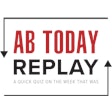|
Copyright 2013 Tribune Review Publishing Company All Rights Reserved Pittsburgh Tribune Review |
|
September 1, 2013 Sunday
|
|
1084 words
|
| NFL to employ concussion specialists |
|
by ALAN ROBINSON
|
|
He is unlikely to be recognized by fans, but he soon might be one of the most important people at an NFL game. The NFL hopes to identify players with concussions quicker this season, and it will utilize a medical specialist on every sideline during every game to do so. An independent head-injury expert, or unaffiliated neurological consultant, will use an iPad loaded with a concussion assessment program to determine whether a player suffered a concussion. If a player fails the test, which takes about eight minutes, he cannot return to the game - no matter what a team physician says. In the past, some team doctors would do nothing more than ask a few brief questions before clearing a player, sometimes in less than a minute. Additionally, a trained medical expert in the press box will call the neurological consultants and identify players they believe might have suffered a head injury so the player can be tested. "It's important to have these injuries evaluated comprehensively and carefully, and I think if you have an expert involved that knows how to evaluate concussions, it is an added value," said Michael "Micky" Collins, the executive and clinical director of UPMC's concussion program. Even with the new method, concussions are the NFL health problem that won't go away. If concussions were a communicable disease, they might be regarded as an epidemic in a sport in which players keep getting bigger and stronger - the league may have its first 400-pound lineman this season - at the same time manufacturers struggle to develop helmets that will lessen the chance of a concussion. "You're not ever going to mitigate concussions," said Dr. Kevin Guskiewicz, a concussion expert from the University of North Carolina and a member of the NFL's Head, Neck and Spine Committee. Already, nearly 30 players have been diagnosed with concussions during training camp or offseason practices, according to the NFL Concussions website. Last season, an estimated 241 players developed a concussion - about 20 percent more than the previous season. Former Lions running back Jahvid Best, who is 24, and Cardinals rookie receiver Ryan Swope were forced to quit because of concussions issues - Swope after developing at least the fifth head injury of his career. The sixth-round draft pick retired before playing in a single preseason or regular-season game. "There aren't many concussions we can't figure out now," said Collins, who contends that understanding the injury has increased substantially in just a few years. "But not everybody gets better quickly with this injury." Players are beginning to realize it. While former Steelers center Jeff Hartings said recently that players effectively cheated on concussion tests so they could keep playing, linebacker Larry Foote said the brain injury's dangers are making many players rethink their stance. "You've got to err on safety's side for the long term," said Foote, who added that he covered up a concussion in the past to stay on the field. "I don't care what type of big game it is or who the player is, if a guy's concussed, we'll see you next week. Players, now, we're kicking that macho thing to the side." That certainly wasn't the approach of the past. More than 4,000 former players have filed lawsuits against the NFL contending they developed concussion-related problems. It's a litigation issue that, for the NFL, could be as damaging financially as smoking lawsuits were for tobacco manufacturers. Coincidentally or not, Daniel S. Goldberg, a lawyer, doctor and member of the East Carolina University faculty, contends the NFL is fighting the suits the same way the tobacco companies did: by following a strategy known as the "manufacture of doubt." He argues the league devoted considerable resources to create doubt the problem exists and doubt of the magnitude of the harm even if it did acknowledge it. The NFL counters by contending it is attacking the injury aggressively and proactively with rules changes, adopting a standardized concussion assessment program and committing $100 million to researching head injuries. Among the measures taken were moving up kickoffs by 5 yards, in part because studies showed far more concussions occurred on special teams plays such as kickoffs and punt returns in which players accelerate for 40 to 50 yards before colliding. However, Steelers safety Ryan Clark said he believes the NFL's heightened campaign to reduce head injuries isn't entirely to protect its players. "I think we're doing everything to prevent head injuries, and on the other end, we're doing everything we can to prevent liability," Clark said. "And I think no matter how you cut it, that is the bigger key for them. Are players going to be the benefit of it? Yes. Guys won't be forced back onto the field with head injuries. Guys won't be able to finagle their way around trainers to get back on the field." Over the past five seasons, NFL commissioner Roger Goodell has taken numerous steps to reduce concussion-causing head shots, and the Steelers - especially linebacker James Harrison, now with the Bengals - were among the most-fined organizations once he did. Harrison alone was fined more than $100,000 for infractions. With the 2013 season less than a week away, players are arguing that Goodell and the league are going so far in trying to reduce head shots that the number of knee injuries are increasing. They argue that players are cognizant of not wanting to be fined for going to the head, so they are going low to hit. "It puts emphasis on, ‘If I can't hit the head, knowing about that fine, I'm going low for sure,' " Foote said. "Guys are conscious of that." A recent study revealed that 1.9 percent of former NFL players are diagnosed with dementia between ages 30 and 49 compared to 0.1 percent of the general population. The NFL is attempting to fight a health problem that exists at every level of the sport - the NCAA also faces a lawsuit - by holding clinics and seminars to assist youth league coaches in determining whether a player should be sidelined during a game. The NFL also has the HeadsUp program, which teaches young players how to hit properly. "Ten years ago, it was, ‘How many fingers am I holding up?' and smelling salts before a player returned to play," Collins said. "Now the pendulum has swung so far that it's obvious everyone is concerned." Alan Robinson is a staff writer for Trib Total Media. Reach him at [email protected] or via Twitter @arobinson_Trib. |
|
September 3, 2013
|
Terms and Conditions Privacy Policy



































